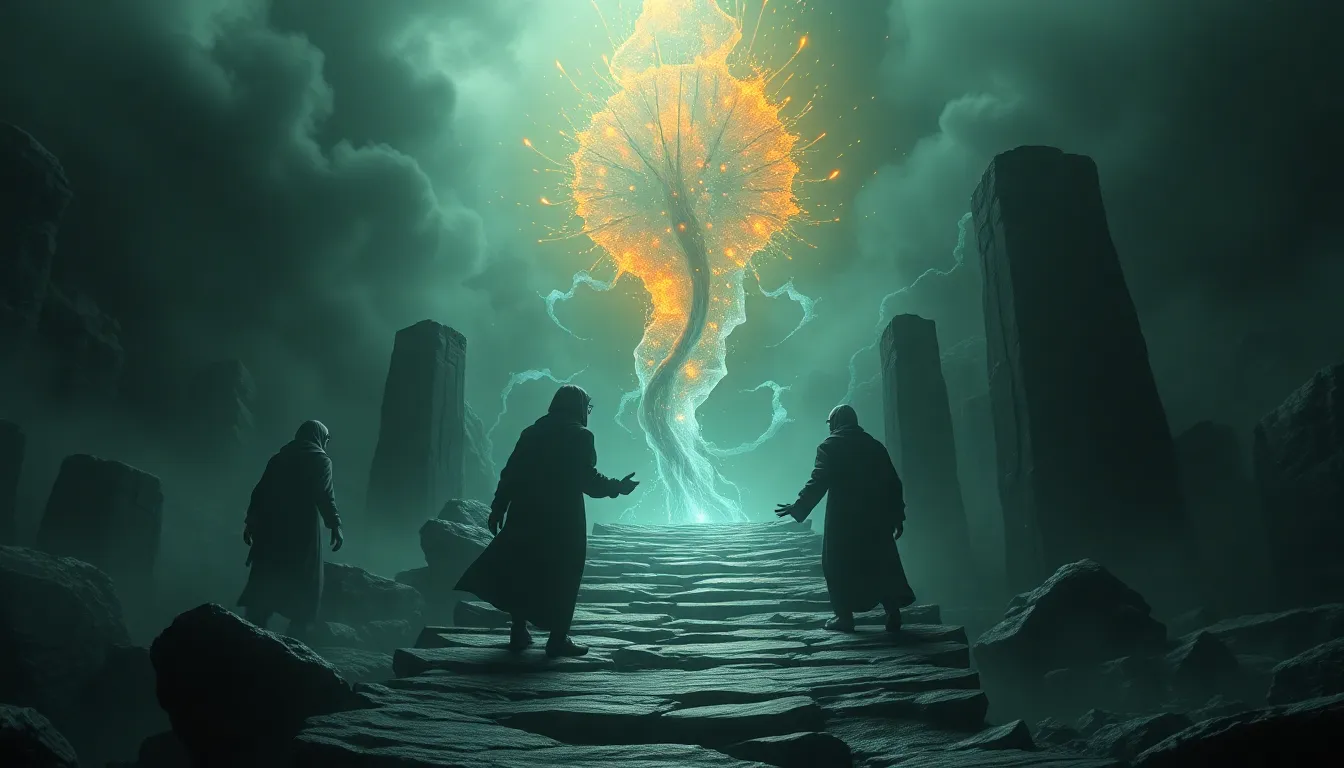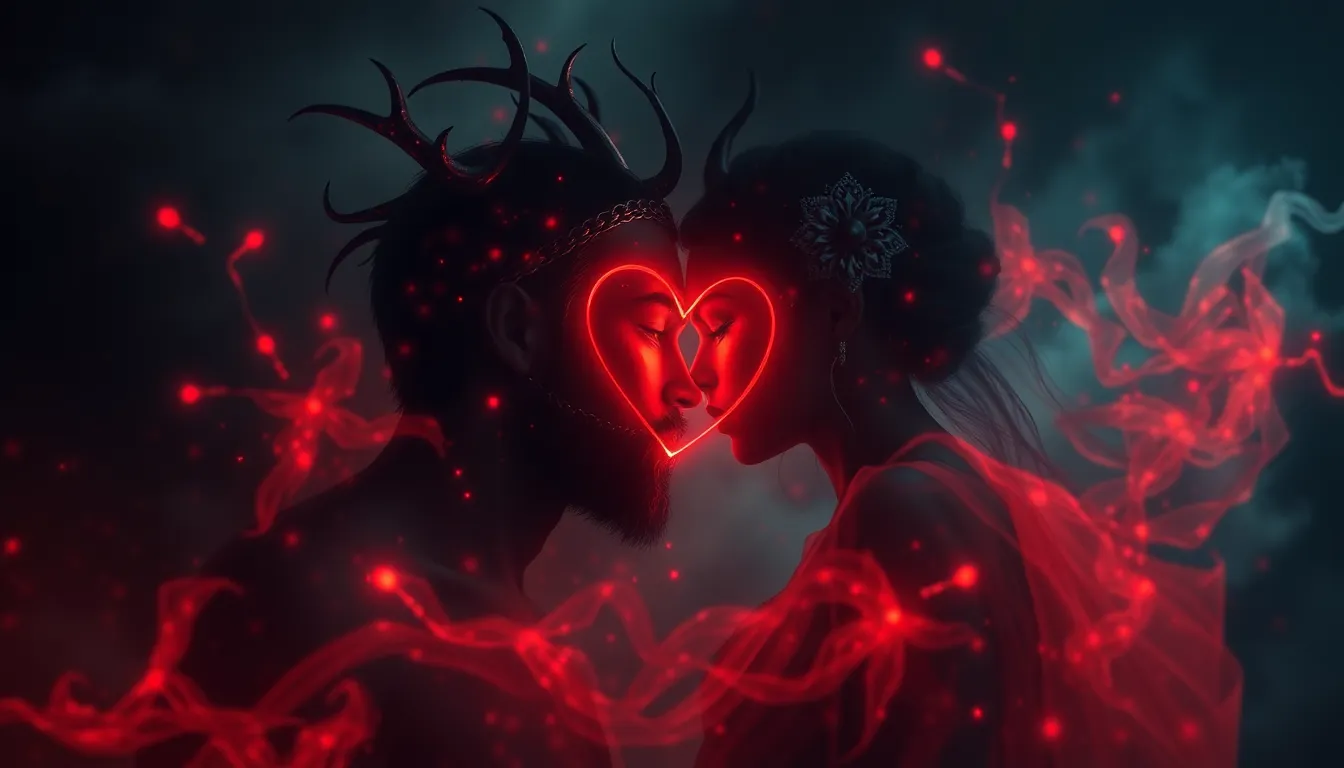The Essence of Transformation: Myths That Capture the Human Experience
Introduction to Transformation and Myths
Transformation is a profound concept that encapsulates the changes, growth, and evolution individuals experience throughout their lives. It is the process through which people redefine themselves, often triggered by significant life events or internal realizations. Myths, on the other hand, serve as timeless narratives that reflect and shape human experiences, encapsulating our struggles, triumphs, and transformations.
This article aims to explore key myths from various cultures that embody the essence of transformation and highlight their relevance in our lives today. Through these narratives, we can gain insights into our own journeys of change and the universal themes that bind us as human beings.
The Role of Myths in Human Culture
Myths are traditional stories that convey the beliefs, values, and experiences of a culture. They often explain the origins of the world, the nature of humanity, and the moral frameworks that govern social conduct. Myths play a crucial role in shaping cultural identity and values, providing a shared language through which individuals can understand their existence and their place in the world.
These narratives reflect collective human experiences and transformations, allowing societies to process complex emotions and events. Myths often address fundamental questions such as:
- What does it mean to be human?
- How do we cope with loss and change?
- What roles do fate and free will play in our lives?
Archetypal Myths of Transformation
Many myths feature archetypes—universal symbols or characters that resonate across cultures. Common archetypes include the hero, the trickster, and the sage, each representing different aspects of the human experience. Transformation is often depicted through these archetypal narratives, showcasing the journey from one state of being to another.
For instance:
- Greco-Roman Mythology: The tale of Persephone illustrates transformation through her descent into the underworld and subsequent return, symbolizing the cycle of life and death.
- African Mythology: The story of Anansi the Spider highlights the trickster archetype, who navigates challenges and transforms through wit and cunning.
- Indigenous Mythology: The legend of the hero twins in Maya mythology represents the trials and triumphs necessary for transformation and renewal.
The Hero’s Journey: A Path of Transformation
Joseph Campbell’s concept of the Hero’s Journey provides a framework for understanding the transformative experiences of heroes in myths. This narrative arc consists of several stages that reflect personal growth and self-discovery:
- Call to Adventure: The hero is invited to embark on a journey.
- Refusal of the Call: Initially, the hero hesitates to take on the challenge.
- Meeting the Mentor: The hero gains guidance and support.
- Crossing the Threshold: The hero ventures into the unknown.
- Trials and Challenges: The hero faces obstacles that test their resolve.
- Return Home: The hero returns transformed, equipped with new wisdom.
Classic heroes such as Odysseus from Homer’s “The Odyssey” and Frodo Baggins from J.R.R. Tolkien’s “The Lord of the Rings” exemplify this journey, showcasing how personal trials lead to profound transformation.
Myths of Creation and Destruction
Creation myths serve as foundational narratives that explain the origins of the universe and humanity. These stories often emphasize themes of transformation, highlighting how something new emerges from chaos or formlessness. For example, the Hindu creation myth of Brahma emphasizes the emergence of the cosmos from a primordial state.
Conversely, myths of destruction, such as the tale of the Phoenix, illustrate the cycle of death and rebirth. The Phoenix rises from its ashes, symbolizing renewal and the transformative power of destruction. This duality of creation and destruction reflects the complexities of personal transformation, suggesting that growth often requires the dismantling of old identities.
Transformation Through Trials and Tribulations
Many myths depict transformation through the concept of trial by fire. These narratives illustrate how adversity can catalyze personal growth and self-discovery. Heroes often face insurmountable challenges that force them to confront their fears, weaknesses, and limitations.
Real-life parallels abound, with numerous stories of individuals overcoming struggles to emerge stronger and more resilient. Examples include:
- Nelson Mandela: His imprisonment became a transformative experience, leading him to become a symbol of resilience and reconciliation.
- Malala Yousafzai: After surviving an assassination attempt, her advocacy for education transformed her into a global icon for human rights.
Cultural Variations in Myths of Transformation
Transformative myths vary across cultures, yet many share common themes. A comparative analysis reveals the universality of transformation narratives in different societies. For example, the hero’s journey is present in both Western and Eastern myths, demonstrating how geography and history influence storytelling.
Despite cultural differences, several themes emerge consistently, such as:
- The struggle against external and internal obstacles.
- The quest for identity and purpose.
- The importance of community and mentorship in the process of transformation.
Modern Interpretations of Ancient Myths
Contemporary literature, film, and art continue to reinterpret ancient myths of transformation, reflecting their relevance in modern society. These reinterpretations often resonate with audiences, offering new insights into age-old themes of growth, change, and resilience.
Examples include:
- Films like “The Lion King”: Echo themes of personal growth and the hero’s journey.
- Literature such as “The Alchemist”: Explores the journey of self-discovery and transformation.
The Psychological Perspective: Myths and the Human Psyche
Myths also hold significant psychological relevance, particularly in the realm of personal transformation. Carl Jung’s analysis of mythological narratives reveals their impact on the human psyche, suggesting that these stories help individuals navigate their own life transitions.
Mythological narratives can serve therapeutic purposes, assisting individuals in understanding their experiences and fostering personal growth. By connecting with these stories, people may find greater clarity and meaning in their own transformative journeys.
Conclusion: Embracing Transformation Through Myths
In conclusion, myths of transformation offer powerful insights into the human experience. They remind us that change is an integral part of life and that through our struggles, we can emerge renewed and transformed. By embracing these narratives, we can better understand our own journeys and the universal themes that connect us all. As we navigate the complexities of our lives, let us turn to the wisdom of ancient myths to find inspiration and guidance in our transformative paths.




